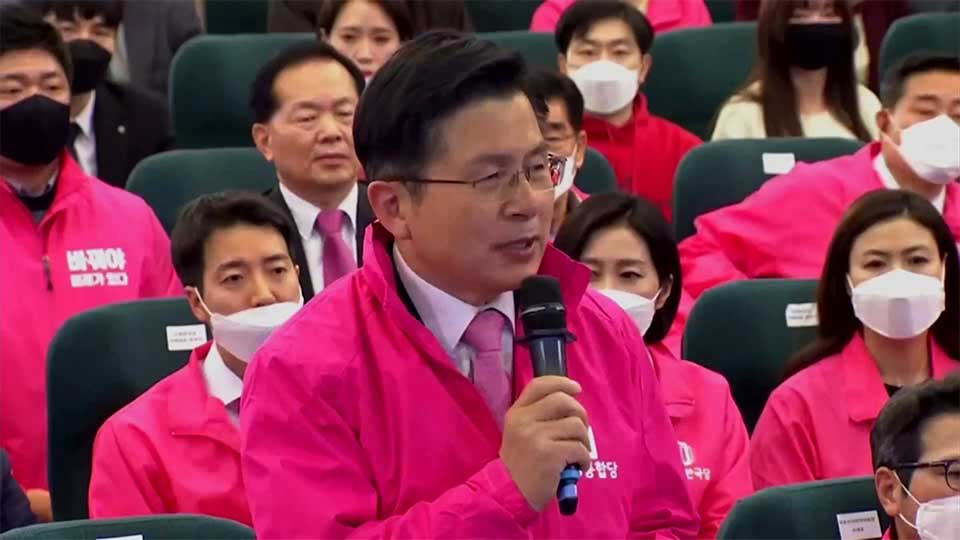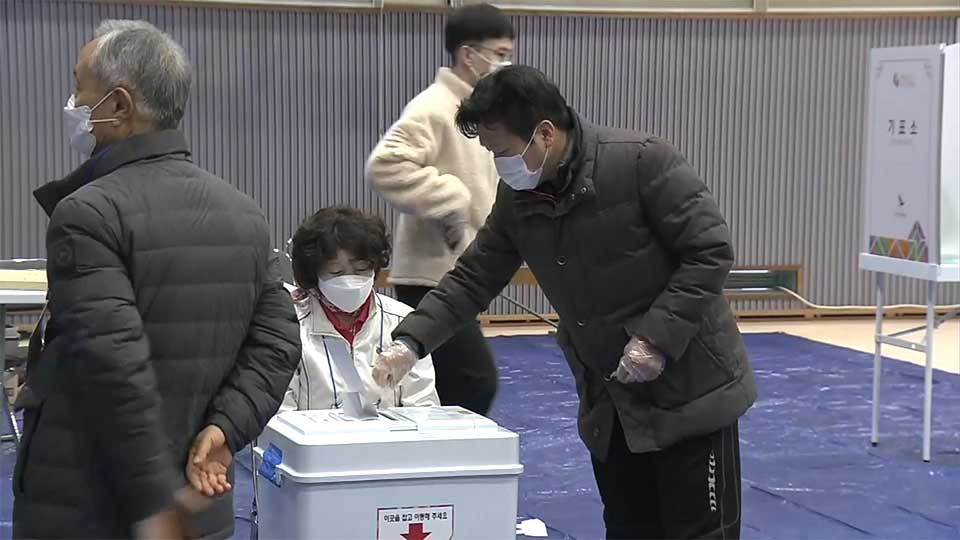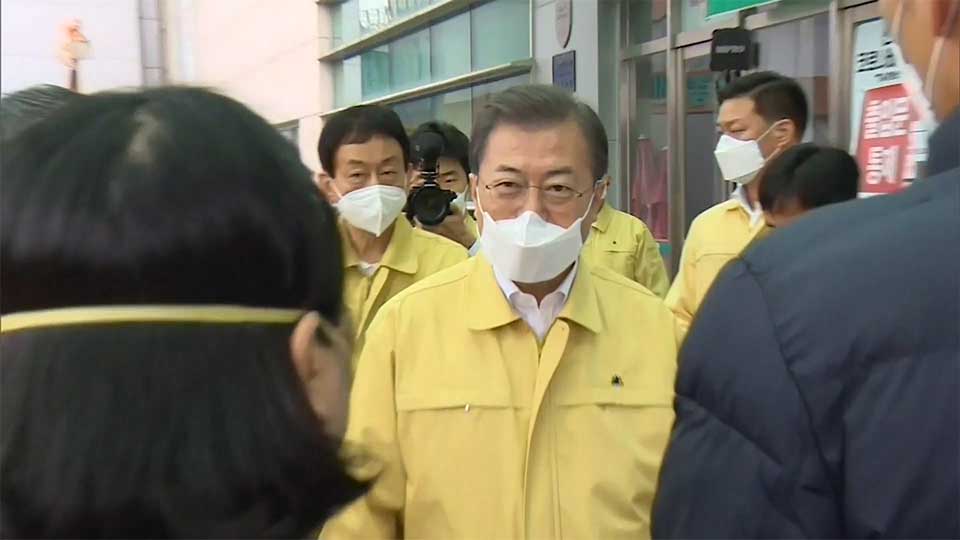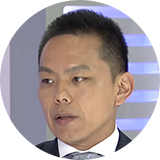A resounding victory
The Democratic Party went into the election as the ruling party but without a majority. It emerged from it with the largest share of the seats since the country’s transition to democracy in 1987.
Along with the affiliated Platform Party, the Democrats took 180 seats. The party fared especially well in the capital and its surrounding regions. More than a dozen former aides to President Moon Jae-in were elected.

The conservative bloc led by the United Future Party saw its parliamentary presence fall from 112 to 103. Party chair Hwang Kyo-ahn lost his bid for a seat and stepped down from his position in the party.
A safe and quiet campaign
The run-up to the election looked and sounded very different to a normal election campaign.
Traditionally, candidates and their supporters stage loud song and dance routines to grab attention, but those scenes were missing this time. Instead, they wore masks, refrained from shaking hands with voters, and spent far less time than usual on the streets. Much of the campaigning was conducted online. Local media called it “the quiet campaign."

On polling day, voters were required to use hand sanitizer and wear disposable gloves when casting ballots, and were instructed to stay at least one meter from anyone else. But none of this seemed to keep voters away. In fact, the 66.2 percent turnout was the highest in nearly 30 years.
The Moon Jae-in administration wasn’t expected to fare this well. Its approval rating had halved to around 40% since taking power in 2017.
Unemployment figures have been rising, and were hovering at just under 10% for young people. The president was facing pushback from small business owners after he hiked the minimum wage. And the administration also found itself dealing with corruption scandals involving former justice minister Cho Kuk and his family, as well as alleged interventions by the presidential office in local elections.
The impact of the virus
Moon’s response to the coronavirus turned things around. Though South Korea was initially one of the countries hit hardest, the government has largely contained the spread through mass testing, including drive-through testing facilities, isolation measures and actively disclosing information on people infected with the virus. It sent his approval ratings rocketing in the last few weeks before the vote.
Challenges to the president and his party
Now that the Democrats have a commanding majority in parliament, Moon will have no trouble getting bills passed, but that doesn’t mean an easy road ahead.
He’s facing the monumental challenge of reviving an economy that was sputtering even before the pandemic. He also has to deal with a dispute with the United States over defense costs. The Trump administration wants South Korea to foot far more of the bill for the US troops stationed there. That idea is widely opposed within South Korea, but as negotiations have stalled, the US has announced it is furloughing thousands of workers employed to service the bases.
If the governments cannot resolve the issue, it could scupper a security arrangement that is designed as a deterrence to North Korea as well as to China.

What it means for Japan
The ruling party’s victory could mean more tension between South Korea and Japan. Moon has taken a tough stance in the past, and he’ll have more allies in parliament now.
Relations between the countries deteriorated in 2018 after the South Korean Supreme Court ordered Japanese companies to pay compensation to South Koreans who say they were forced to work in Japan during the World War II.
Japan maintains the issue was completely and irreversibly settled in 1965 when the two countries normalized diplomatic ties.
And the tensions grew last year when the Japanese government excluded South Korea from its list of countries eligible for preferential measures to simplify certain export procedures.
In response, the South Korean government said it would scrap the bilateral military information sharing agreement GSOMIA. Seoul later reversed the decision, but said it reserved the right to scrap it at any time.
Kookmin University Professor Lee Won-deog points out that the new National Assembly members include Yoon Mi-hyang, a major activist on the issue of those referred to as wartime comfort women, which could bring more instability to bilateral relations. But he also says President Moon has more leeway on policy on Japan now that he has a firmer political foundation.
Keio University Professor Nishino Junya says he doesn’t expect relations to change immediately, as both governments will prioritize the fight against the coronavirus, but the ruling party will have a leadership election this summer and that could bring policy changes.
Moon Jae-in and his party have parlayed a successful coronavirus response into a landslide victory that will affect domestic, regional and global issues. It’s a result he couldn’t have dreamed of just months ago. But expectations are high and so are the hurdles.

